If you are having issues with low water pressure in your RV, there are a variety of issues that could be the culprit, and sometimes it may be a combination of things. The good news is with a little patience, you should be able to get things fixed and back to normal.
Keep in mind, the solutions below are not an all-inclusive list. They are simply a collection of the most common issues, what to look for, and how to quickly address them.
So, with all that being said, what are the most common issues for having low water pressure? Let’s take a look.
Why does my RV have low water pressure?
Problem | Solution |
Water pump | Turn off if connected to city water |
Water valves | Make sure valves are correct |
Aerators | Check for debris |
Hoses | Check for kinks |
Debris screen | Check for debris |
Air in lines | Bleed out air |
Pressure regulator | Check for funtionality |
Outside shower | Close valves |
Water filter | Check for clogging |
Hot water heater | Bleed out air |
Water Pump
Make sure your water pump is not on if you are connected to city water. The only time you need to use the water pump is if you are not connected to city water and you are pulling water from your freshwater tank. A water connection will usually provide all the pressure you need.
By running the pump when the freshwater holding tank is empty, you may end up putting air into your water lines.
However, you can use your water pump to supplement the city water pressure if needed, but you have to make sure you have a full freshwater tank to do so.
Water Valves
Check to make sure you don’t have a partially closed water valve. Also check to make sure the valves going into and out of your water heater are correct.
If the bypass valve is open, which used to winterize the system, it can cause low water pressure. Make sure your bypass valve is oriented the proper way.
Take a look below at the correct and the incorrect orientation.
Faucet Aerator
If you are only having issues at one faucet, it could be the aerator screen. Debris can sometimes get trapped in the screen and restrict water flow.
Keep in mind, this can also affect multiple faucets as well. Be sure to check all faucets while you are at it.
It is a good idea to perform this check on new RV’s as well. There can sometimes be leftover debris in the system from the manufacturing process. Is so, it’s best to take care of it before heading out on your first trip.
If you are having low pressure at your shower head, and there are no obstructions, try an Oxygenics shower head.

These are great products and will help you increase the water pressure at the shower head, while using less water.
It’s a win win!
Hoses
Check the freshwater hose from the water supply to your camper. It seems simple, but make sure there are no kinks or areas where it may have collapsed, like something on top of it restricting flow. While you are here, disconnect your hose and check the pressure coming out of the spigot.
These things can happen inadvertently and cause pressure issues. If so, simply fix the issue and get back to camping.
Debris Screen

Check the debris screen at your city water connection. Once you unhook the hose, you should find a screen filter with a rubber washer. Pull it out and check to see if it is clogged or dirty. If it is, either clean it out thoroughly or replace it.
Air in the lines
If you have air in the lines, this could also be an issue. Most of the time this air will bleed out after your hot water tank fills.
If you continue to have air in the lines, and if you connected to a water source, open up all your faucets and let them run until all the air is removed from the system.
Pressure Regulator

If you are not using a pressure regulator, you should buy one. A general rule of thumb is if your unit is older (subjective, I know) you want to stay under 50 psi, and if it’s a newer rig, it can handle up to 60 psi. For peace of mind, I recommend 50 psi.
If you determine your pressure regulator is bad, simply replace and be on your way.
My favorite is a simple and cheap Camco (40055). You can pick one up for less than $9.
Water Filter
If you have a built-in water filter, you should remove the filter and see if that improves your water pressure. If so, it is time to replace it.
It’s a good idea to replace your filters every year if your rig is getting used semi-frequently. Always keep an extra on hand, just in case this becomes an issue while you are on the road.
Hot Water Heater
Make sure your drain plug in your hot water tank is secured all the way and not leaking. This will definitely cause some pressure issues. Also, make sure you bleed the air out of your hot water tank as well.
How to bleed RV hot water heater
- Turn off your hot water heater and let the water cool
- Disconnect water supply and relieve the pressure by opening a faucet
- Make sure the pressure release valve is open and the water drains
- Close faucet and pressure release valve
- Reconnect water supply and fill the hot water heater
- Turn hot water heater back on
Leak in system
You may have a water leak somewhere in your system. Carefully inspect all of the water lines, fittings, connections, etc. and try to locate leaking water.
This is important because you want to prevent any collateral damage from the leak. Make sure you are thorough and take as much time as you need.
Conclusion
There you have it. A non-“all-inclusive” list of common issues related to low water pressure in RV’s. Pretty much all of these problems can be fixed by someone with little to no experience.
Don’t be intimidated and feel like you have to hire someone to help you out. Go through this list, check out each potential issue, and keep pushing. I think you will find it to be easy and straight forward.
If you have a water issue I didn’t list above, shoot me a message and I will get it added to the list.

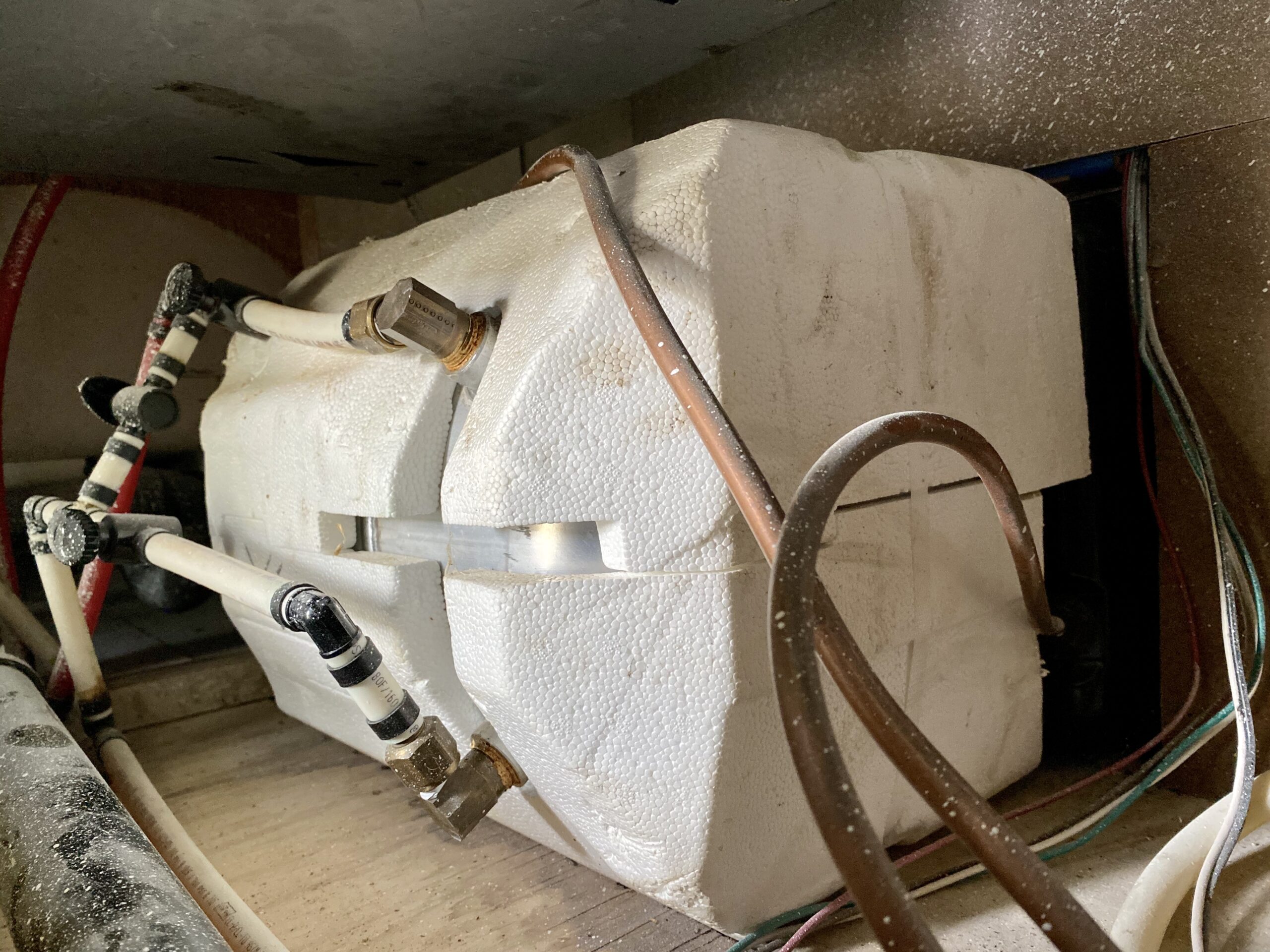




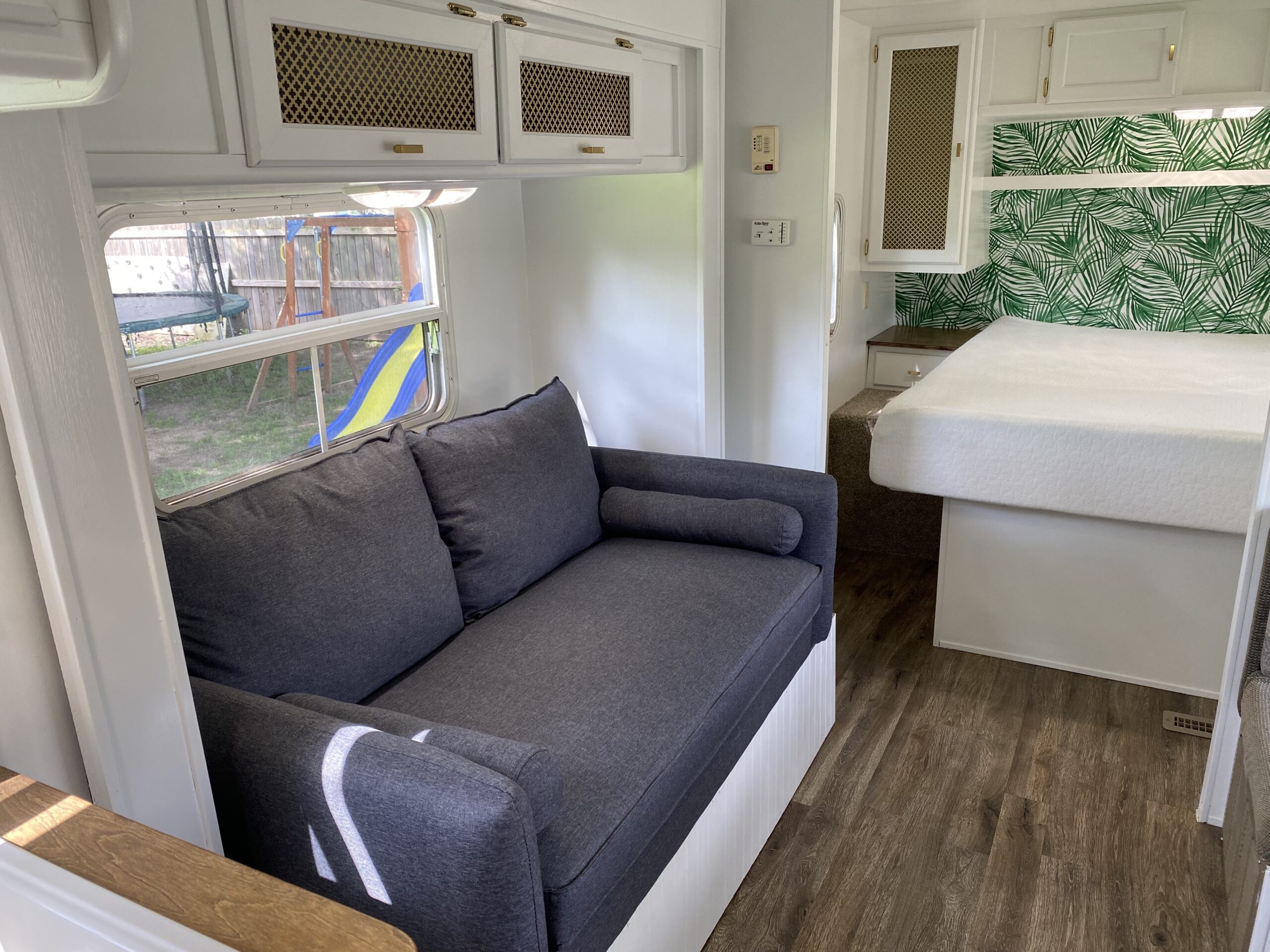
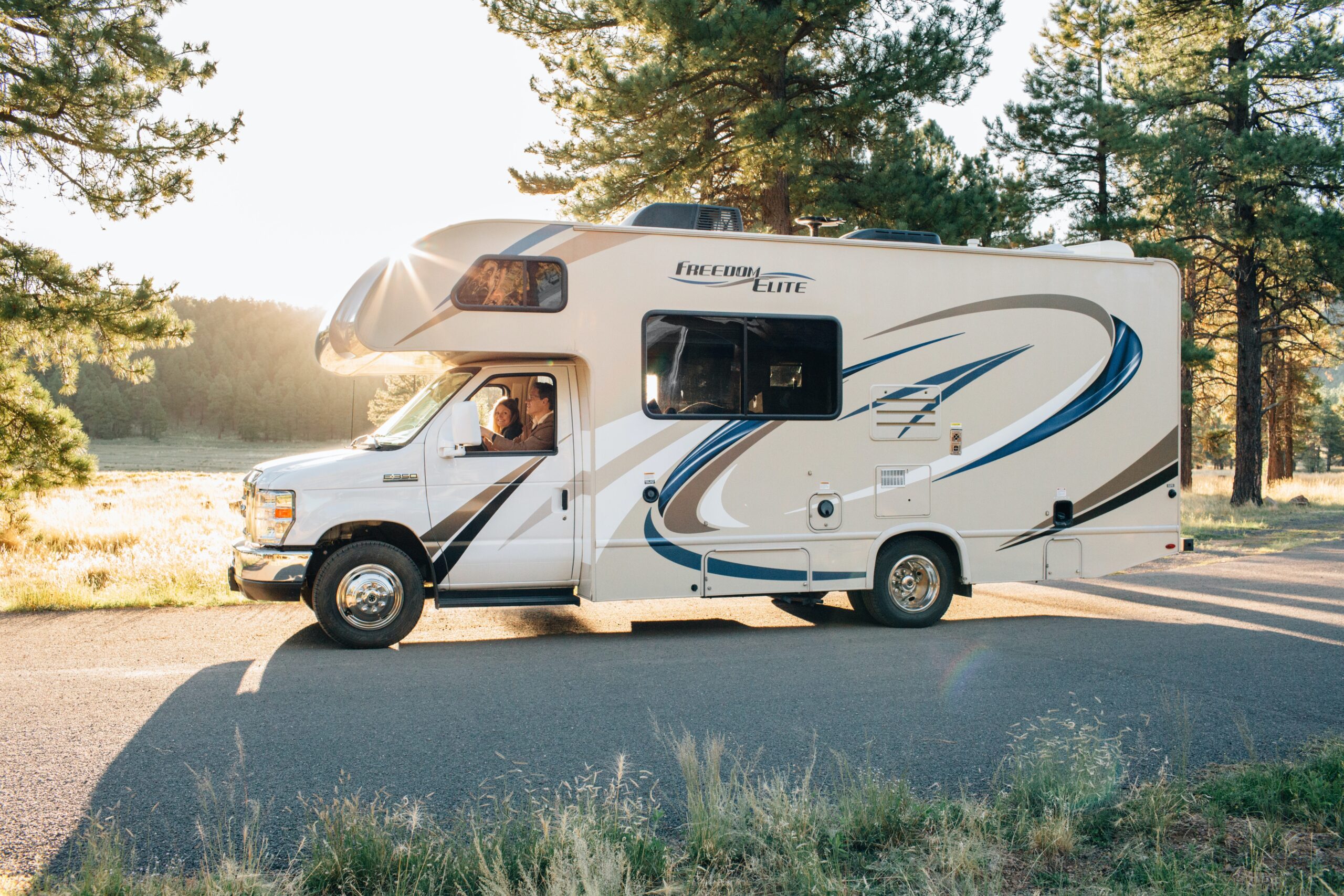
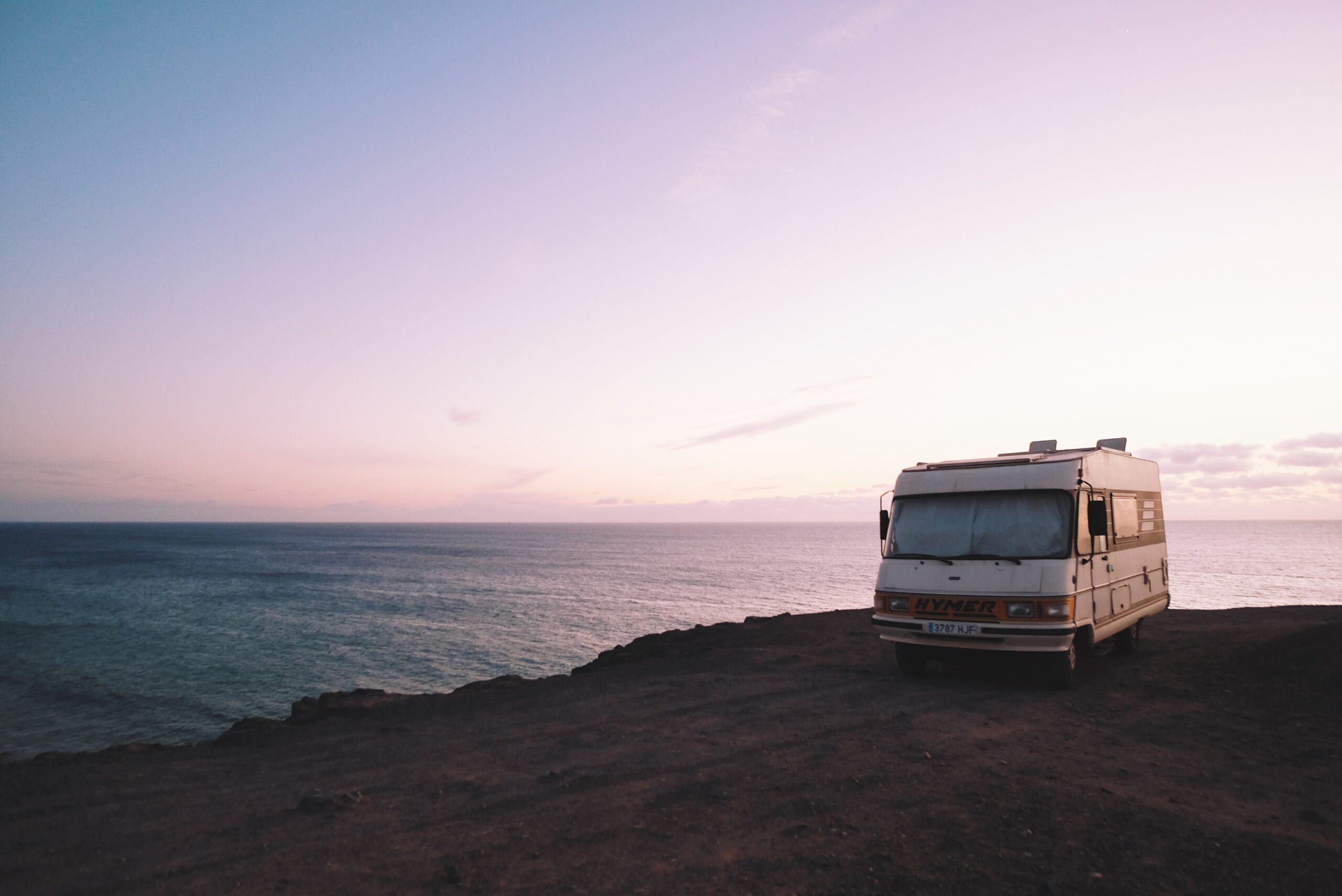
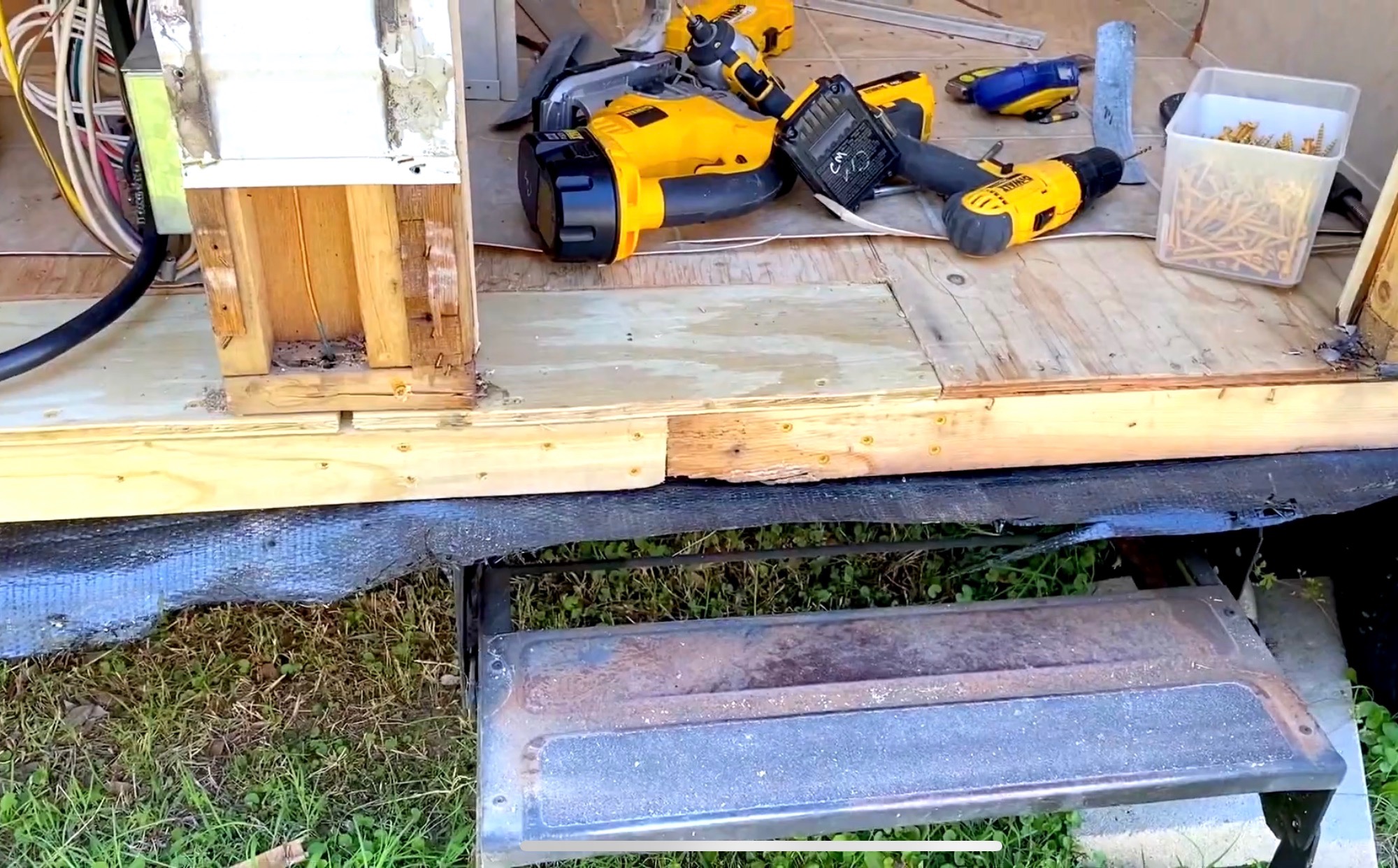

5 Responses
Nothing about check valves…
When I turn the bypass valve for summer use I don’t have any pressure but getting hot water but barely coming out , could it be a bad check valve
When my water pressure builds up it loose pressure somehow. ??? What causes this
We are currently using an older model RV (unsure of year at present). There are two RVs hooked up to a water well. There is a line from the well to a valve with a v put on for two hoses to be connected to it-each to an RV, but there is low water pressure. At our water pressure gauge, it shows about 40psi or a little lower. It’s a bit difficult to take a shower or wash dishes as a result, but at least we have clean hands.
Great advice guys! Although I do become suspect when I hear or read ” hot water heater”.
Us folks who have been in the trades for years know that the units are “water heaters”. If it was a “hot” water heater, it would be redundant. Hot water doesn’t need to be heated.